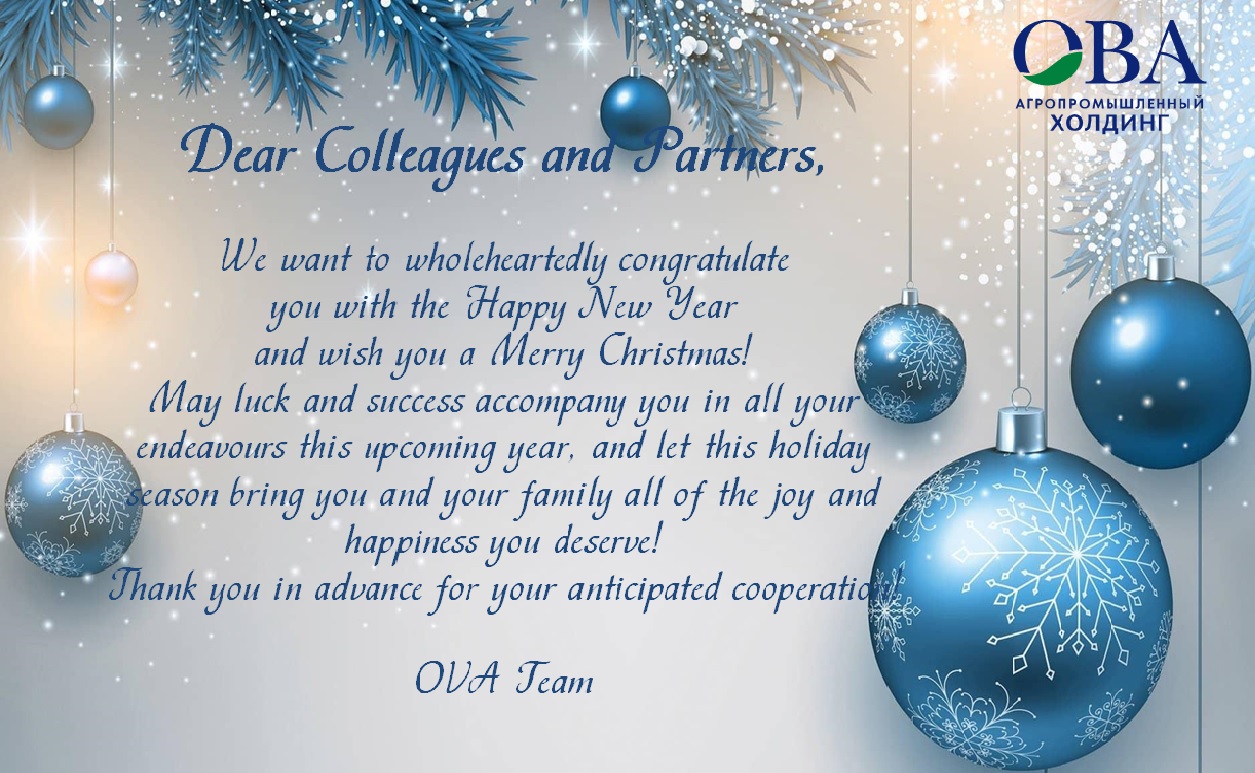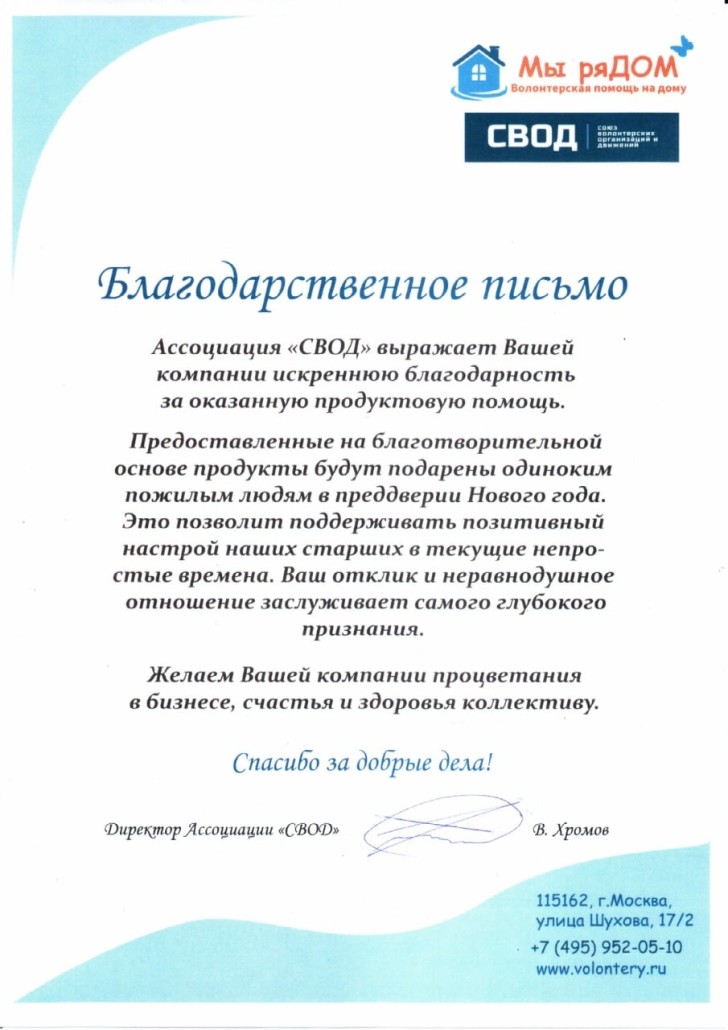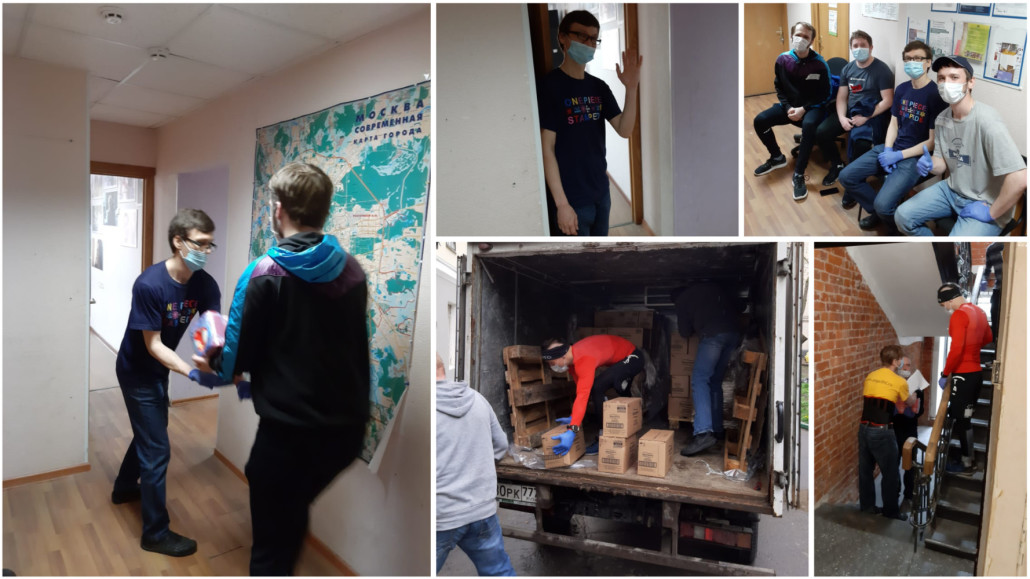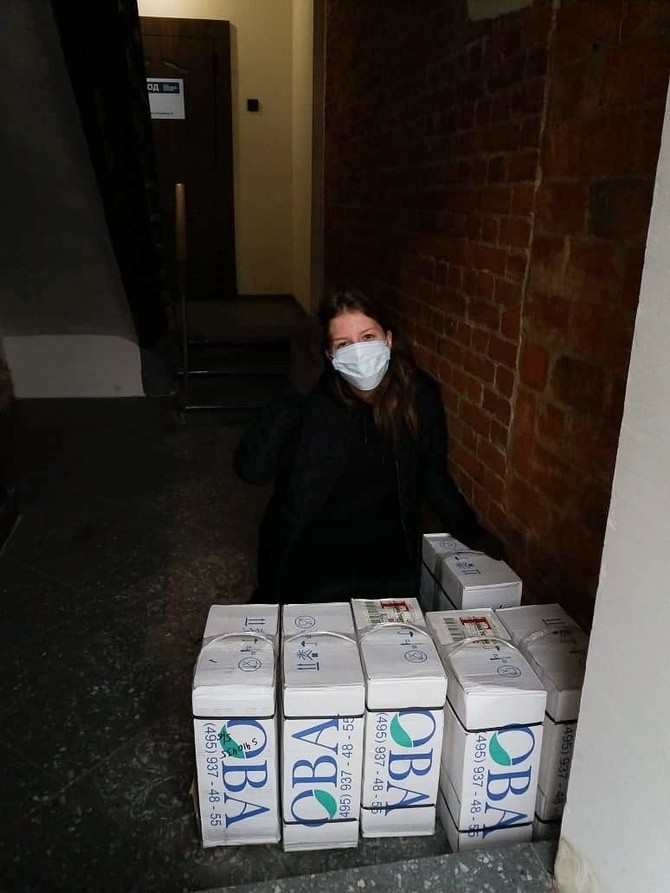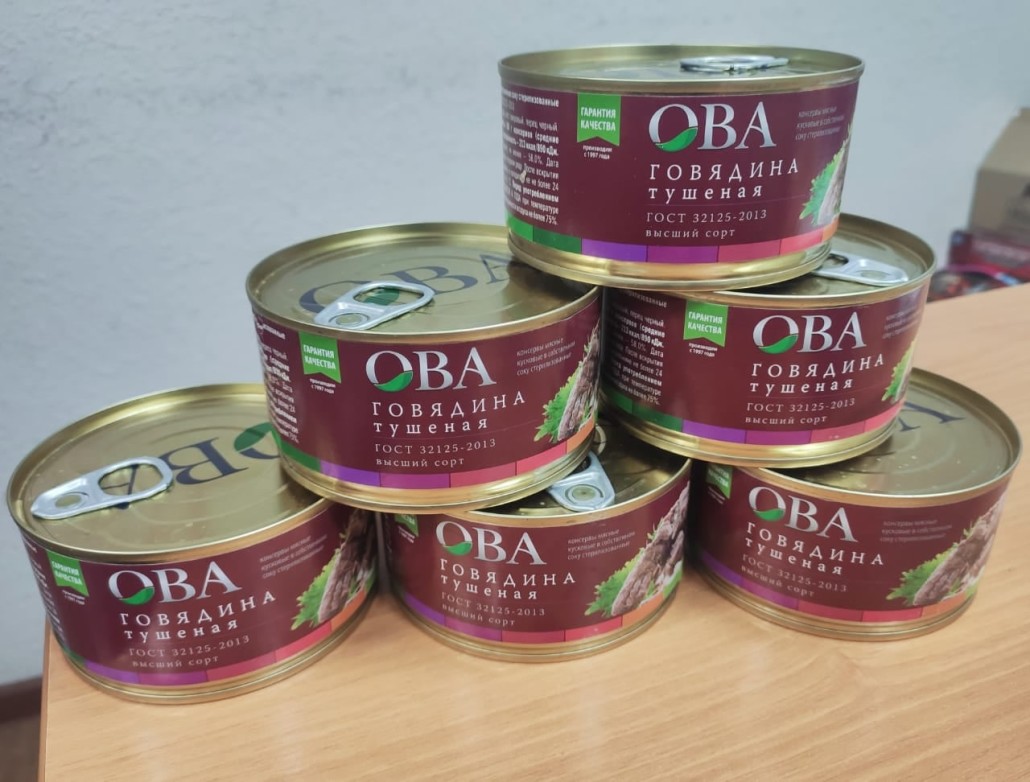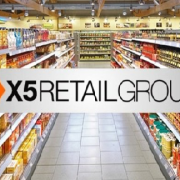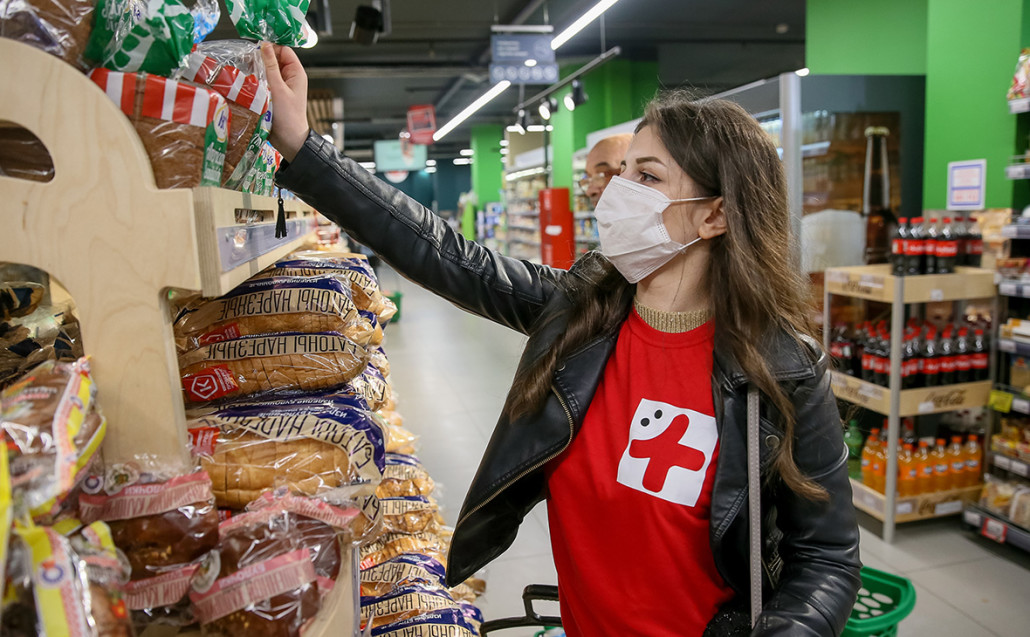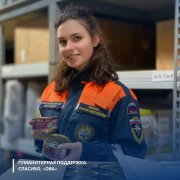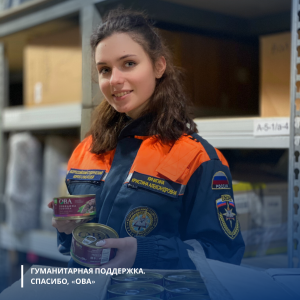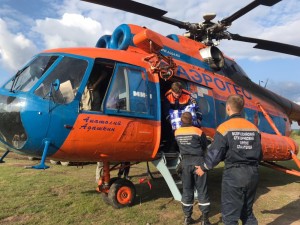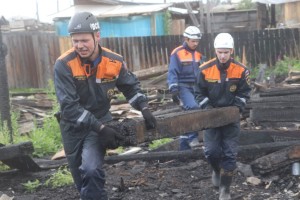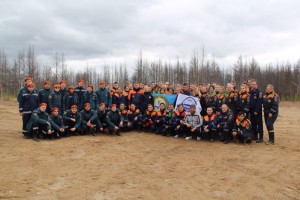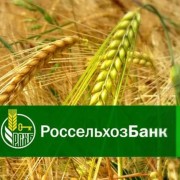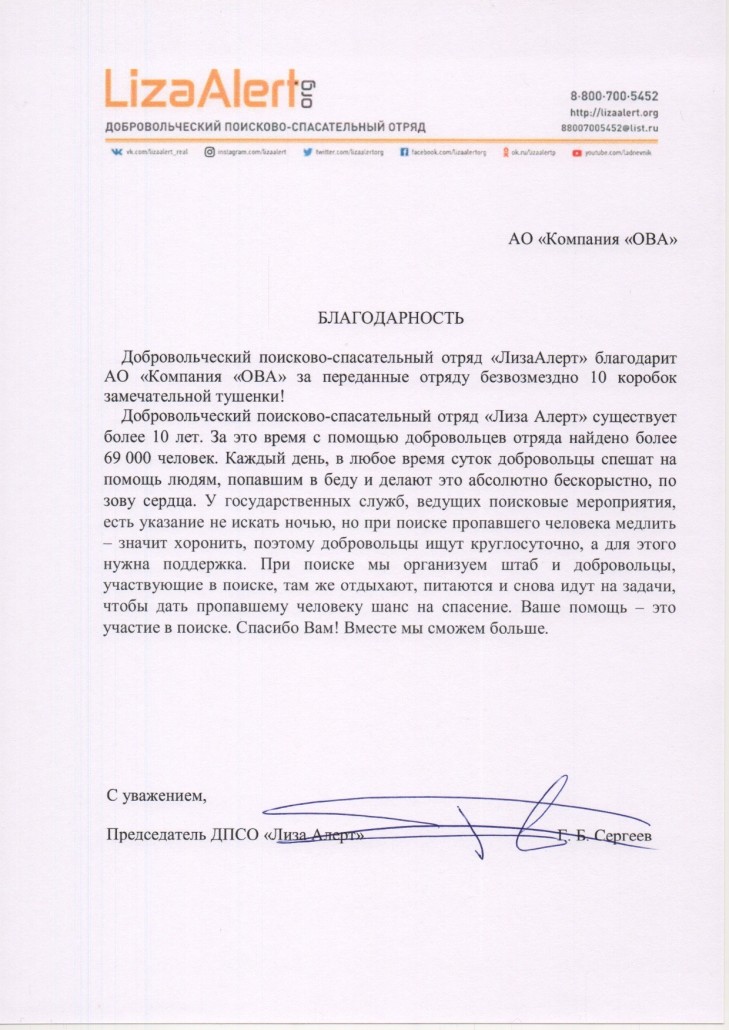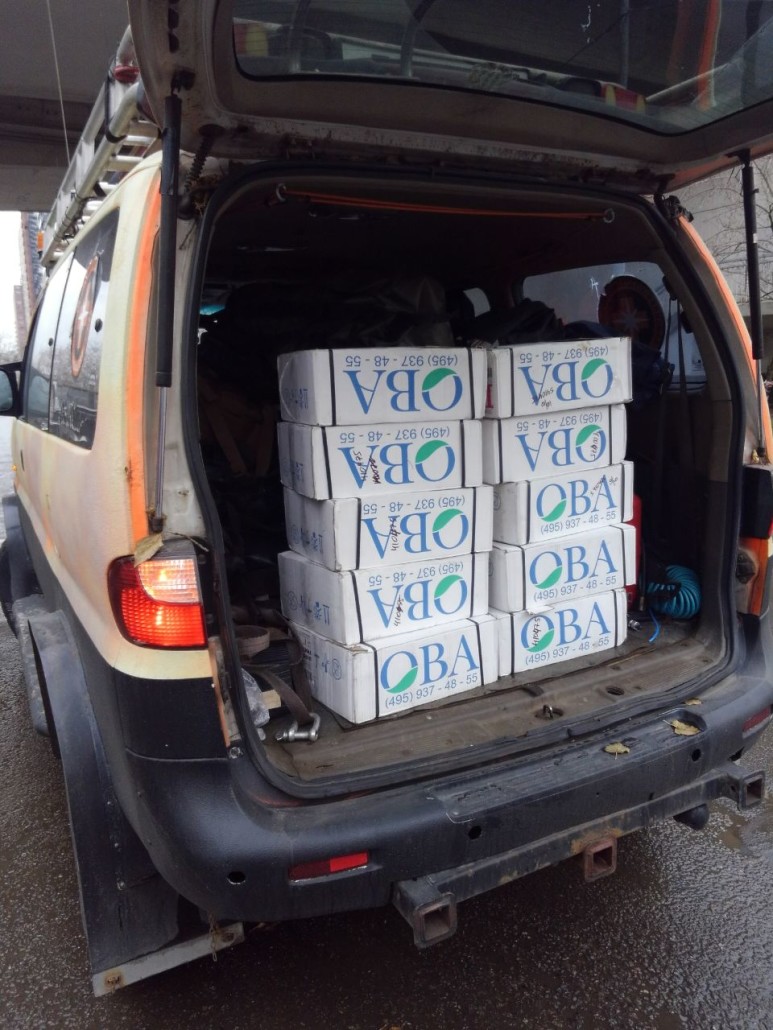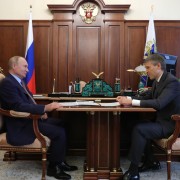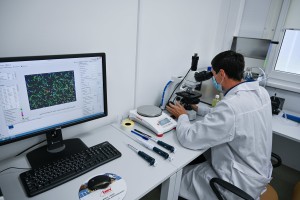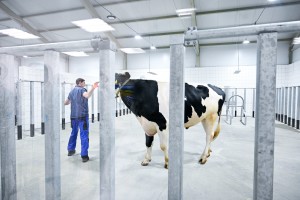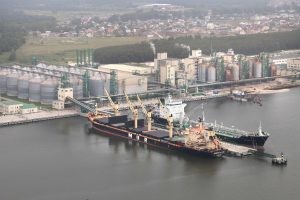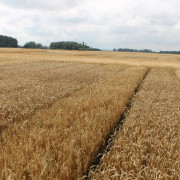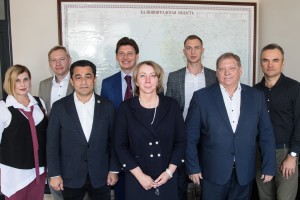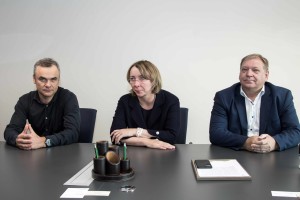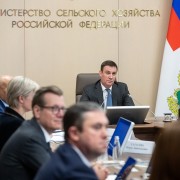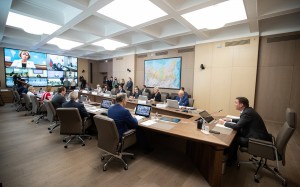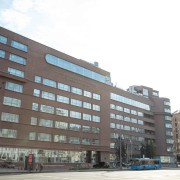Archive for year: 2020
Support for volunteer projects
On the eve of the upcoming new year holidays, the Union of volunteer organizations and movements collects charity food packages for the elderly. The kits will be given to older people who are in a difficult situation due to COVID-19. Team of the Union on a regular basis support 150 such people in Moscow. The kits will be delivered by the Union’s volunteers during December of this year.
X5 Retail has promised to remove the mark-up on bread and canned meat against the background of government measures.
The chain’s stores will sell some products, including pasta, canned meat and bread, at a purchase price from suppliers. All additional costs for the purchase of goods, including logistics and staff salaries, will be covered by the company
X5 Retail has promised to remove the mark-up on bread and canned meat against the background of the measures of the authorities
, the chain’s stores will sell some products, including pasta, canned meat and bread, at the price of purchasing from suppliers. All additional costs for the purchase of goods, including logistics and staff salaries, will be covered by X5 Retail Group
The X5 Retail Group (which operates Pyaterochka, Perekrestok and Karusel stores) said that seven basic food products will be sold in its stores at the purchase price from suppliers. This is stated in the company’s message received by RBC. Thus, the retailer intends to reduce the cost of products against the background of the decision of the authorities to resolve the situation with rising prices for them.
the measure will take effect on december 16. Zero trade margin will be set for the following products from the basic consumer basket:
pasta, bread, canned meat (beef stew), black tea, potatoes,cereals, ultra-pasteurized milk.
These products will be marked with special price tags on store shelves. The company will cover the trading costs for them, including rent, logistics, utilities and staff salaries.
“We hope that our initiative in the field of self-regulation will be supported by colleagues in the industry, as well as manufacturers and suppliers. This will help keep prices down and support buyers, ” said Igor Shekhterman, Chief Executive Officer of X5 Retail Group.
In “Magnet” said RBC that the margin on the range of socially significant goods in the company’s stores and so is at minimum or zero levels. “The current problem of rising prices for these goods is not related to the mark-up of retail chains, but to an increase in purchase prices, which affect the increase in prices on the shelf in cases where the increase is objectively justified,” they added.
Auchan has a minimum trade rating for a number of socially significant products, and some of them are sold below the purchase price, Natalia Rychkova, Communications Director at Auchan Retail Russia, told RBC. such products include cabbage, potatoes, onions, carrots, cucumbers, bananas, chilled chicken of its own brand “auchana”, sugar, sunflower oil, etc., she added.
RBC:
https://www.rbc.ru/business/16/12/2020/5fd9a9ee9a79477411f0d4ef
All-Russian student rescue corps
OVA provided humanitarian food support in the form of canned meat for VKS volunteers (all-Russian student rescue corps). Students-rescuers of VKS participate in emergency response, often work “in the fields” or on exercises in difficult conditions, where camping rations are needed.
The all-Russian student rescue corps is one of the largest student volunteer organizations in the Russian Federation. It was formed in 2001. The VCS consists of more than 8,000 volunteers from 67 regions of the Russian Federation. All rescue students receive special training to provide qualified assistance to special services in emergency situations, as well as for regular information and preventive work with the population in the field of safety culture. Classes are held on the basis of the all-Russian center for coordination, training and retraining of student voluntary rescue units of RTU MIREA, as well as on the basis of regional branches of the VKS.
The corps participates in the unified state policy in the field of prevention and elimination of emergencies caused by accidents, catastrophes, natural disasters and other disasters; provides civil and Patriotic education of Russian youth; assists the government in solving the main tasks of the state youth policy.
Over the years, difficult daily work of all-Russian student rescue corps received recognition in many departments of EMERCOM of Russia, has established itself as a demand-driven structure.
Today VKS is an all-Russian rescue team that conducts rescue operations, takes part in the elimination of major Federal emergencies, projects of the Ministry of emergency situations, youth forums and competitions. We also provide security at events of various levels and train people how to act correctly in case of emergencies.
Ecosystem for farms “Own Farming”: a platform for conducting agribusiness, selling agricultural products and agricultural tours
 The leading Bank for farmers – Rosselkhozbank-has developed an ecosystem of digital services “Own Farming” for small farming enterprises.
The leading Bank for farmers – Rosselkhozbank-has developed an ecosystem of digital services “Own Farming” for small farming enterprises.
This is a digital platform that combines all products, services and services for effective agribusiness. The ecosystem allows farmers to sell their own agricultural products through a specialized marketplace.
Despite the fact that the ecosystem was launched only recently, it is rapidly gaining popularity.
What services are represented in the ecosystem?
The agricultural products marketplace is a section of the ecosystem that allows users to select and purchase products for running an agricultural business from reliable suppliers and manufacturers. The ecosystem already offers more than 10,000 products in various categories: seeds, fertilizers, plant protection products, agricultural machinery, agricultural chemicals, grain, feed, and many others. Hundreds of suppliers, including leaders in the production of goods for the agricultural business, placed their offers on the site. For users of the marketplace ecosystem, this is a great opportunity to buy everything you need for your business within a single platform without additional charges directly from suppliers and manufacturers.
The search and recruitment service is a service that allows farmers to select employees for their business, and job seekers to find work in agriculture. The ecosystem already has more than 5,000 vacancies, and the resume database is being filled.
The TV veterinary service gives farmers the opportunity to receive qualified veterinary care in a remote format 24/7.
The “smart” seed selection service will help you select seeds in one click based on certain parameters: the region of cultivation, culture and direction of use.
In the ecosystem presents and other ioservice for the efficient conduct of business. This service of precision agriculture, map agriculture service accounting and control/x animals, a calendar of agricultural events, the Navigator state services, monitoring the birth of calves and other.
The ecosystem includes business services that help entrepreneurs run their business effectively: online accounting, legal assistance, and useful resources for doing business. As well as financial services, which are a lightweight version of the agricultural Bank’s product range. This means that you can remotely apply for preferential loans and open a current account.
Today, more than 20 services for conducting agribusiness are presented on the site “Svooe farm”. You can view the full list and learn more about each service on the Ecosystem’s website.
How do I sell farm products?
As part of the ecosystem, an online platform “Svoje Rodnoe” has been launched, which brings together farmers and buyers. This is a platform for selling natural products and services in the field of agrotourism. Here, any Russian farmer can sell products of their own production and agricultural tours — trips to farms.
In order to start selling farm products, you need to register for free in the ecosystem “Your Farming” and select the seller’s profile “Your Native” in your personal account. Then download the product catalog and add a description of the farm. At the same time, farmers set their own prices, delivery methods, and payment methods. All uploaded products become available to customers to order on the site “Svoje Rodnoe”, as well as in the mobile app of the same name.
For farmers, this is a great opportunity to sell their products directly to customers, without extra charges, to share the experience of rural entertainment, offering customers excursions, tastings and participation in craft workshops.
We invite all farms and agribusinesses to get acquainted with the ecosystem “Own Farming”, register for free, and start using useful services and opportunities for marketing farm products.
The President of Russia was presented with agro-industrial projects of the Kaliningrad region.
Among such projects related to the use of innovative technologies, Boris Listov named the selection and genetic center “Intergen Rus”-the first such private organization in Russia for obtaining breeding genetic seed material for dairy farming. Intergen Rus is part of the Zalesye group of companies.
On Tuesday, October 20, Vladimir Putin met with the Chairman of the Board of the Russian agricultural Bank Boris Listov. The credit organization is a leader in financing the agro-industrial complex. The Bank’s activities are primarily related to the implementation of state tasks for the development of the agro-industrial complex and rural areas. Boris Listov informed the head of state about the Bank’s current activities and told about ongoing projects in the agro-industrial sector. Among such projects related to the use of innovative technologies, Boris Listov named the selection and genetic center “Intergen Rus”-the first such private organization in Russia for obtaining breeding genetic seed material for dairy farming. Intergen Rus is part of the Zalesye group of companies. It is one of the leaders in the dairy industry of the Kaliningrad region, a vertically integrated company that performs a full cycle of dairy products production. “Thus, with the help of the Bank, a full cycle of agricultural production was formed, not just from the field to the counter, but from genetics to the counter,” said Boris Listov. – Together with German partners, a modern breeding and genetic center was created. We visited it, saw it, and it’s very interesting.” Another company in the agro – industrial sector, which was discussed at the Meeting of the President of the Russian Federation and the Chairman of the Bank’s management Board, is Sodruzhestvo. “I wanted to tell you about Kaliningrad. This is the Sodruzhestvo group of companies, Kaliningrad region, the largest holding in Europe for processing oilseeds, in this case soy, 2.8 million tons,” said Boris Listov. For reference: the agro-industrial complex is a strategically important sector of the Kaliningrad region’s economy. In 2020, the agro-industrial complex of the region demonstrates systematic and progressive development of all sectors. The indicator for the production of agricultural products in the current year in value terms is projected at the level of 42.5 billion rubles. In the first half of the year, the index of agricultural production increased by 15% compared to the previous year. In order to create a modern system of breeding production in the region, a project was implemented to build a breeding and genetic center, a partner of the international Union of MASTERRIND and RBB companies. Intergen Rus specializes in improving the quality characteristics of the genetic material of cattle for dairy farming. At present, 12 Holstein bulls are kept here, and in 2020 it is planned to expand the number of bulls by another 30. This year, Intergen Rus LLC delivered genetic material for the production of up to 5,000 head of cattle in the Kaliningrad region and up to 2,000 heads outside the region, and it is planned to send material for the production of up to 5,000 more heads in various regions of the country. The Zalesye agricultural holding includes about 20 companies engaged in the production of feed, raising young cattle, several livestock complexes, and milk processing. The group’s production capacity is about 130 tons of milk per day. At the moment, the company produces 130 types of products, which are delivered not only in the Kaliningrad region, but also since 2014 – to Moscow and the Moscow region, St. Petersburg. The Sodruzhestvo group of companies is the largest Russian exporter of agricultural products with a powerful port, logistics, and production infrastructure for storage, processing, transshipment, and trade of agricultural goods. The company’s export products are based on soybean and rapeseed oils, as well as rapeseed meal. The production complex of Sodruzhestvo group in the Svetlovsky district is the largest enterprise in Europe for deep processing of oilseeds. Up to 8,5 thousand tons of soybeans, rapeseed or ginger can be processed here every day. In addition, Sodruzhestvo is one of the largest exporters of Russian grain. Every year, the holding supplies more than one million tons of wheat, barley, corn and other agricultural products to the countries of Asia, Central America and Africa. In 2019, products worth over 1.1 billion US dollars were exported. The geography of deliveries covered more than 70 countries. Since 2019, the company has started a large – scale investment project-the construction of a plant for the production of protein concentrates (SPC). It is a product with a wide range of applications in the food industry, in the processes of feeding and rearing animals, poultry and fish. The capacity of the plant, which is being built in the Svetlovsky district, will be 500 tons per day (125 thousand tons per year). This enterprise will become one of the largest in the world, 90% of its products are planned to be delivered abroad, which will increase the volume of annual exports of the agro-industrial complex by 120 million US dollars. For the Kaliningrad region, Sodruzhestvo group is one of the largest investors in the Special economic zone, one of the largest employers and a city – forming enterprise in the Svetlovsky district. The holding provides jobs for more than 2 thousand people.
Фото http://kremlin.ru/ и https://gov39.ru/
http://mcx39.ru/main/prezidentu-rossii-predstavili-agropromyshlennye-proekty-kaliningradskoj-oblasti/
A project on variety testing of agricultural crops is being launched in the region
A project on variety testing of agricultural crops is being launched in the region
The corresponding agreement was signed on Tuesday, September 15, by the Ministry of agriculture of the Kaliningrad region, the Zalesye group of companies and the German seed Alliance.
The event was attended by Natalia Shevtsova, Minister of agriculture of the region, Andrey Romanov, Chairman of the Board of Directors of Zalesye group of companies, and Gennady Eremin, General Director of the German seed Alliance.
The German Seed Alliance is an Alliance of large German seed breeding companies that deals with the selection of agricultural crops, mainly grain. So, at the breeding station in the Lipetsk region, they bred a variety of winter wheat “Lipetsk star”.
In the Kaliningrad region, the agreement provides for the creation of a demonstration site on the basis of the Zalesye group of companies, where varieties of agricultural plants, including winter and spring crops and soybeans, will be tested. Specialists will monitor how different varieties of crops will manifest themselves under the same conditions and in compliance with the same cultivation technology.
“This activity will allow us to assess how certain varieties will behave in our production and weather and climate conditions. Selection, seed production – an actual direction of crop production in the light of export development in the agro-industrial complex. We pay close attention to this work,” Natalia Shevtsova said.
For reference:
The agro-industrial sector is one of the priority, dynamically developing areas of the Kaliningrad region’s economy. According to the results of 2019, the region increased the volume of agricultural production by almost 20% in value terms (41.1 billion rubles).
According to a number of industry indicators, the region is the leading one in Russia. In particular, the region is consistently among the leaders among Russian regions in the yield of rapeseed and grain crops – thanks to the introduction of advanced technologies and the use of the latest breeding achievements.
During the visit to the region of the Minister of agriculture of Russia Dmitry Patrushev on July 16-17, 2020, it was announced that according to the results of the harvesting campaign-2019, the region took the fourth place in the country in terms of grain and leguminous crops with a result exceeding 50 C/ha, and the first place in terms of rapeseed yield.
It should be noted that 2019 was a record year for Kaliningrad crop production, when the maximum yield of grain and rapeseed in the history of the region was obtained – 680 thousand tons and 118.7 thousand tons, respectively. The region’s demand for grain is fully met.
According to forecasts, in 2020, the gross grain harvest will be about 700 thousand tons of rapeseed – 147 thousand tons. Such indicators were planned to be achieved only by 2025.
In 2019, food exports from the region totaled us $ 1.26 billion. At the same time, the region accounts for a third of the total volume of exports of agricultural products of the North-Western Federal district and 5% of exports of all agricultural products in Russia. The main exports from the Kaliningrad region are products of the fat and oil industry, cereals, fish and seafood.
In the first half of 2020, exports of Kaliningrad agricultural products increased by 8% and amounted to 667.20 million us dollars.
http://mcx39.ru/main/v-regione-zapuskaetsya-proekt-po-sortoispytaniyu-selskohozyajstvennyh-kultur/
The Ministry of agriculture of Russia held a final meeting of the Board
On September 2, the final meeting of the Board of the Ministry of agriculture of the Russian Federation was held, dedicated to the results of the Department’s activities in 2019 and strategic tasks for 2020.
The event was attended by Deputy Prime Minister of the Russian Federation Victoria Abramchenko, Minister of agriculture Dmitry Patrushev, representatives of both chambers of the Federal Assembly, heads of subjects and regional agribusiness management bodies, Federal authorities and regulatory agencies, unions and associations, scientific and banking communities, as well as public organizations.
Natalia Shevtsova, Minister of agriculture of the Kaliningrad region, participated in the event in a video link format.
The participants of the meeting were welcomed by the Chairman of the Government of the Russian Federation Vladimir Mishustin, who noted that according to the results of work in 2019, Russian farmers showed good results. “We expect that we will finish the year successfully as well. There are prerequisites for this. And not only due to the volume of production of large agricultural holdings, but also due to the work of small businesses. Farmers and individual entrepreneurs who receive grants from the state have increased agricultural production by more than a third,” the Prime Minister said. Vladimir Mishustin also stressed that it is important to continue working on the development of rural areas, build roads and houses, open schools and FAPs, repair clubs and conduct Internet-to do everything to make people in rural areas comfortable.
Victoria Abramchenko said that one of the most important tasks facing agriculture is to increase exports. “Russian agricultural products are already delivered to 160 countries and are represented in the Middle East, East and South Asia, Africa, the European Union and, of course, the CIS. Russia managed to exceed the plan for grain exports by almost 5%, while exports of meat and dairy products increased by 31%. Our task is to increase the export of agricultural products by 2024 almost twice. This is our key “growth point” for the coming years. The problem can be solved only by systematic approaches, ” Victoria Abramchenko said. First of all, according to the Deputy Prime Minister, this will be possible through the involvement of unused agricultural land in circulation, as well as through the development of infrastructure in rural areas.
Dmitry Patrushev in his report noted the increase in state support for the agro-industrial complex in the past year. 318.3 billion rubles were allocated to the state agricultural program, which is 64.2 billion rubles more than a year earlier. The agribusiness index reached 103.7%. The profit of agricultural organizations exceeded the level of 2018 by almost 13% and amounted to 353.8 billion rubles. The share of profitable organizations exceeded 84%, which is 1% higher than a year earlier. Wages in agriculture continued to grow steadily.
In 2019, Russian farmers collected more than 121 million tons of grain, which was the second harvest volume in the post-Soviet history. Other achievements of plant growers include record collections of oilseeds, sugar beets, and vegetables. Domestic animal husbandry has strengthened its position. Production of livestock and poultry increased by 283 thousand tons compared to 2018, and milk – by almost 750 thousand tons. there is a positive trend In the processing sector. The production of semi-finished meat products, canned food, cheeses, milk and dry cream, as well as sugar, vegetable oil, confectionery and pasta, and mineral water has increased.
The Russian agro-industrial complex has been strengthening its position in international markets for several years. In 2019, Russia delivered $ 25.6 billion worth of products and food to foreign markets. At the same time, the Minister stressed that it was possible to exceed the indicators not only for grain and fat-and-oil products, the demand for domestic products with high added value is growing.
The volume of foreign trade for the current year is 25 billion dollars. “In 2020, more than 30 billion rubles were pledged to support exports. However, we are not limited to financial measures. A lot of work continues on creating a system for promoting and positioning Russian products abroad. And, of course, the work on opening new markets does not stop even in connection with the current situation. We plan to get access to at least 13 more markets for various types of products in 2020, ” Dmitry Patrushev said.
Speaking about the situation in the industry in 2020, the Minister noted that the coronavirus pandemic has made its own adjustments in all areas, including the agro-industrial complex. “Nevertheless, it is very important that our global plans are not violated, including strategic ones. APK continued to work normally and smoothly even in the most active period of infection in the first place, providing Russians with high quality products in the required amount,” — said the head of the Ministry of agriculture.
As Dmitry Patrushev noted, despite the current situation and difficult weather conditions, Russian farmers regularly and on time carried out spring field work. Currently, the harvesting campaign is in an active phase-more than 101 million tons of grain have been harvested. Harvesting rates and yield indicators are significantly higher than in 2019.
For 7 months of 2020, the production of livestock, poultry and milk increased compared to the same period in 2019. In the food and processing industry, there was an increase in all major categories — the index of food production was 105.4%.
Every year, the state allocates a significant amount of funds to support the industry. In 2020, almost 337 billion rubles will be allocated for the development of agriculture and rural areas. The Ministry of agriculture of the Russian Federation, together with the subjects and agricultural producers, is working to improve the mechanisms, increasing the efficiency of using Federal budget funds.
Separately, the Minister focused on the work to improve the quality of life in rural areas, which is carried out within the framework of the state program “Integrated development of rural territories”, launched in 2020. 35.9 billion rubles are provided for its activities. According to the results of the first year, the effect of the state program will affect the territories where 4.9 million people live, which is 13% of the total rural population.
The hallmark of the state program was the mechanism of “rural mortgage”, which, according to Dmitry Patrushev, aroused interest among citizens. The tool has already been used by almost 17 thousand people in 80 regions of Russia. The volume of loans issued exceeded 33 billion rubles.
Among the strategic areas of work, the Minister outlined technological modernization, development of scientific and educational base, breeding base, increasing crop yields, putting agricultural land into circulation, as well as digital transformation of the agro-industrial complex.
“In the Kaliningrad region, the agro-industrial complex is one of the most important priorities of the regional state policy. We have significant opportunities for the development of the industry, which are related to the natural and climatic features of the region, the situation on the national and world markets of agricultural products,” Natalia Shevtsova said. — The industry is faced with the task not only to ensure food security and import substitution, but also to direct all efforts to increase export volumes.”
According to the Ministry of agriculture of the region, the region’s population is now fully self – sufficient in potatoes, 87% in eggs, 75% in meat and meat products, and 61% in vegetables. The population’s demand for whole milk is fully met, and the availability of deep-processed dairy products (cheeses, condensed milk, curd products) is 78%. The record year for Kaliningrad crop production was 2019, when the maximum yield of grain and rapeseed in the history of the region was obtained – 680 thousand tons and 118.7 thousand tons, respectively.
Thanks to the construction of new livestock complexes in the dairy and meat cattle breeding industries, the construction of pig farms
in the region, there is a dynamic growth in the gross production of milk and meat. From 2012 to 2020, annual gross milk production increased to 184.4 thousand tons, or 24 %. According to the results of work for 2019 in agricultural organizations of the region that are not related to small and medium-sized businesses, the yield per feed cow amounted to 8,764 kilograms, which puts the region in the top three for this indicator in Russia. The production of livestock and poultry for slaughter in live weight is growing every year. At the end of 2019, the production of livestock and poultry for slaughter in live weight in farms of all categories amounted to 93.2 thousand tons,which is 14% higher than the previous year.
In 2019, in comparison with 2014, the agricultural sector not only increased the regional level of self-sufficiency, but also doubled the volume of exports of food products and agricultural raw materials. The main exports from the Kaliningrad region are products of the fat and oil industry, cereals, fish and seafood. According to preliminary information, exports of fat and oil products in the first half of 2020 increased by 23 % compared to the same period last year.
With the growth of agricultural production, the share of the sector in the gross regional product also increased (according to preliminary data, up to 7 % in 2019).
At the end of the final meeting of the Board of the Ministry of agriculture, Dmitry Patrushev said that in recent years, the agro-industrial complex and the fisheries sector have shown steady growth due to state support, technology development and, of course, thanks to the hard work of farmers. Over the past few years, we have managed to change the perception of agriculture as an unprofitable and risky industry, and to form an understanding that it is a modern and profitable business.
https://mcx.gov.ru/press-service/news/minselkhoz-rossii-provel-itogovoe-zasedanie-kollegii-57261/
The Ministry of agriculture of Russia has summed up the results of six years of bradenburg
The Ministry of agriculture of Russia summed up the six-year results of the food embargo imposed by presidential decree No. 560 of August 6, 2014 “on the application of certain special economic measures to ensure the security of the Russian Federation”.
During this time, the Russian agro-industrial sector has demonstrated significant dynamics of development – today Russia fully provides itself with basic food products and is actively increasing the export potential of the industry.
According to agriculture Minister Dmitry Patrushev, the most important result of recent years is the creation of tens of thousands of jobs in the agricultural sector.
“The opening and intensive development of agricultural enterprises throughout the country has significantly improved the employment situation in rural areas. Moreover, today, when Russia, as well as the whole world, is facing various consequences of the coronavirus pandemic, the agro – industrial complex is a donor of jobs for other sectors of the economy and is ready to accept specialists from various fields, including high-tech ones,” the head of the Ministry of agriculture said.
Over the past six years, Russia has reduced food imports by a third – from $ 43.3 billion in 2013 to $ 30 billion in 2019. So, for pork, it has decreased by almost ten times – if in 2013 the country imported this meat for 2.6 billion dollars, then in 2019 it is already only 270 million dollars. For cattle meat, imports decreased by 2.5 times, from $ 3.2 billion to $ 1.3 billion, poultry – almost twice, from $ 911 million to $ 410 million, vegetables and dairy products – by a third. Imports of tomatoes decreased by 42.1% from 1.1 billion to 639 million dollars, apples and pears – by 50.8% from 1.2 billion to 586 million dollars.
Confident development of the agro-industrial complex and self-sufficiency in many indicators allowed us to change the development paradigm from an import-substituting model to an export-oriented one. Russian agricultural exports increased one and a half times and amounted to 25.6 billion dollars at the end of 2019 against 16.8 billion dollars in 2013. In particular, there was a significant increase in deliveries of meat and fat-and-oil products, food and processing industry products abroad. Russia is among the leaders in the supply of wheat, vegetable oil, fish, sugar and a number of other categories.
Over the past six years, the volume of state support for agriculture has increased significantly. In 2013, 197.9 billion rubles were allocated for the activities of the State program for the development of agriculture.in 2019, the amount of funding amounted to 311.5 billion rubles.
Among other things, thanks to these measures, Russia has seen a significant increase in production of the main types of crop production — cereals (from 92.4 million tons in 2013 to 121.2 million tons in 2019), sugar beets (from 39.3 million tons to 54.4 million tons), soybeans (from 1.5 million tons to 4.4 million tons), vegetables in winter greenhouses (from 538 thousand tons to 1.14 million tons), fruits and berries in agricultural organizations, peasant (farmer) farms and individual entrepreneurs (from 678 thousand tons to 1.18 million tons) and other cultures.
Significant progress has also been made in the field of animal husbandry. For example, production of pigs for slaughter in live weight in farms of all categories increased from 3.6 million tons in 2013 to 5.03 million tons in 2019, poultry production – from 5.2 million tons to 6.7 million tons.
“Thanks to the work of our farmers and effective state policy over the past six years, the volume of agricultural production has increased by 22.4%, and the industry as a whole has become one of the drivers of the Russian economy. Together, we have managed to change the perception of agriculture as an unprofitable and risky industry in many ways, and to create an understanding in the business environment that it is a modern, high-tech and profitable business. At the end of last year, the profitability of agricultural organizations reached 13.3%, which is almost twice higher than in 2013. Today, we note a stable inflow of Russian and foreign capital, even from investors who previously had nothing to do with the agro-industrial complex. The industry has become one of the largest consumers of new technologies and advanced scientific developments. More and more people see opportunities and prospects in agriculture both for themselves and for their business,” Dmitry Patrushev said.
In 2014-2019, the actual growth in agricultural production was 119%, food – 131%, and beverages-105%. According to the results of this year, the expected growth in agricultural production over seven years may be 120.2%, food products-135.3%, beverages-108.1%, and in General for the agro – industrial complex-125.1%.
In General, the effect of restrictive measures gave an impetus to the development of the Russian agro-industrial complex, contributed to the inflow of investment, and created additional jobs in agriculture and related industries.
“In the Kaliningrad region, the introduction of the Russian food embargo has helped to strengthen the position of economic entities and increase the level of self-sufficiency, and has given an incentive to the development of the regional agro-food complex. In the region, new agricultural enterprises are being put into operation and start working, farms are being created, acreage is expanding, agricultural production is increasing, and its range is expanding,” said Natalia Shevtsova, the Minister of agriculture of the region.
According to the Ministry, the region’s population is now fully self – sufficient in potatoes, 87% in eggs, 75% in meat and meat products, and 61% in vegetables. The population’s demand for whole milk is 100% met, and the supply of deep-processed dairy products (cheeses, condensed milk, curd products) is 78 %.
During the period 2013-2020, investment projects in livestock and crop production are being actively implemented, which have contributed to an increase in production. The cost of gross output has been doubled: from 20 billion rubles (2013 level) to 41.1 billion rubles (2019 level).
In 2020, the total acreage in farms of all categories in comparison with 2013 increased by more than 100 thousand hectares and amounted to 286.5 thousand hectares.
From 2013 to 20219, the gross harvest of cereals and legumes increased from 332 to 680 thousand tons, oilseeds – from 76 thousand to 122 thousand tons, vegetables – from 64 thousand tons. up to 76 thousand tons, potatoes – from 127 thousand. up to 137 thousand tons.
“The active introduction of intensive and innovative technologies in agriculture has allowed to increase the yield of agricultural crops, the main indicator of technological efficiency in crop production, and bring the region to the key positions in the rating among other subjects of the Russian Federation for cereals and rapeseed,” Natalia Shevtsova said. – For farmers in the region, 2019 has become historically significant, when a record harvest of grain and rapeseed was obtained. Taking into account the expert assessment, it is planned to get the harvest at the level of last year in 2020.”
A significant increase in production occurred in the production of vegetable products. The area of closed ground has increased by more than 2.5 times, while the area of greenhouse complexes for year-round use has increased by more than 5 times (from 1.63 ha to 8.75 ha).
With the increase in vegetable production in the region’s farms by more than 2 times (from 15.7 thousand tons to 34.9 thousand tons in 2013 and 2020, respectively), there was a significant expansion of the product range.
Industrial gardening has been actively developing in the region since 2013. The area of perennial plantings, including the laying of the spring of this year, is 1,243 hectares. In this direction, projects have been implemented to create a nursery of fruit and berry crops on an area of 70 hectares, which will produce 1 million seedlings per year when reaching its design capacity, two agricultural consumer cooperatives have been created, and modern fruit storage facilities with a controlled gas environment are planned for construction.
Significant development in the past six years has taken place in the livestock industry. Thus, the production of pigs for slaughter in live weight in farms of all categories increased from 32.1 thousand tons in 2013 to 42.1 thousand tons in 2019 (by 31 %), poultry production – from 21.1 thousand tons to 37.9 thousand tons (by 79%). Milk production increased from 149.6 thousand tons to 184.9 thousand tons (by 24 %), and egg production from 195.5 million units to 252.8 million units (by 29%).
Currently, a modern system of production of domestic breeding products is being formed in the region. The Zalesye group of companies is implementing an international project of a highly specialized breeding and genetic center for dairy cattle (with a specialization in the Holstein breed), which is a partner of the enterprises of the international Union of breeding companies MASTERRIND and RBB (MASTERRIND and RBB).
The implementation of the project makes it possible not only to provide the breeding stock with breeding material (seed) of world genetics, but also to implement a unique program for securing bulls. Within the framework of this project, 12 heads of Holstein bulls were imported in 2019-2020 to complete the herd of the limited liability company “Intergen Rus”. By the end of 2020, it is planned to complete the enterprise with thirty more heads of bulls-producers. The company was granted the status of “organization for artificial insemination of farm animals”. Due to the presence of this enterprise in the region, it is planned to reduce the share of imported seed in the Kaliningrad region by 40 %. In the long term, this project will create a domestic Fund for genetic resources of dairy cattle.
Фото https://mcx.gov.ru/
http://mcx39.ru/main/minselhoz-rossii-podvel-itogi-shesti-let-dejstviya-prodembargo/



